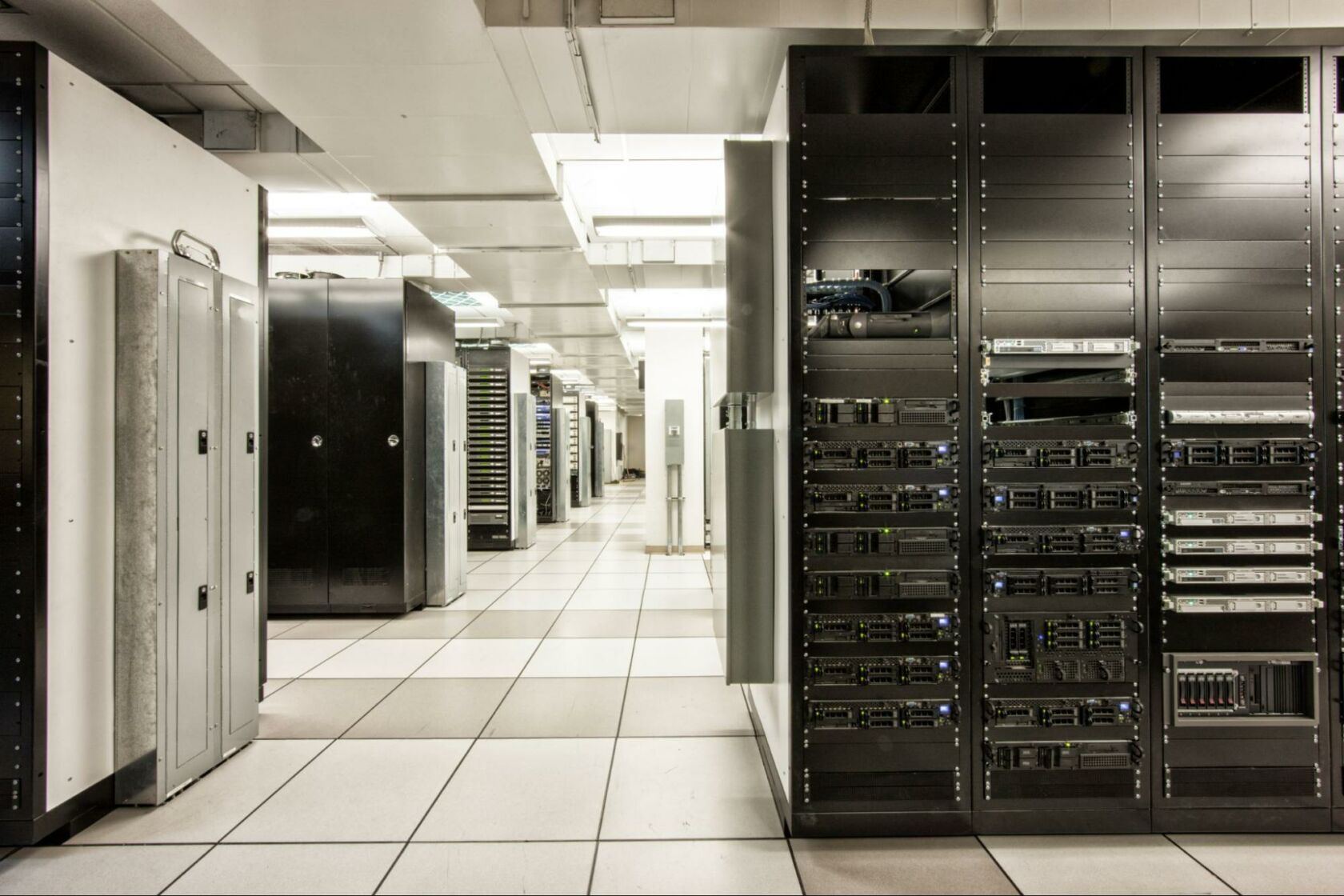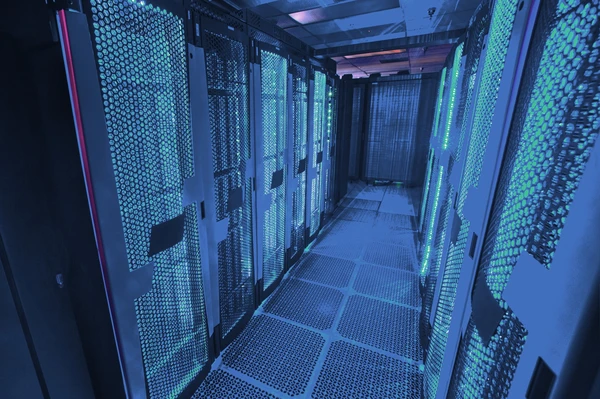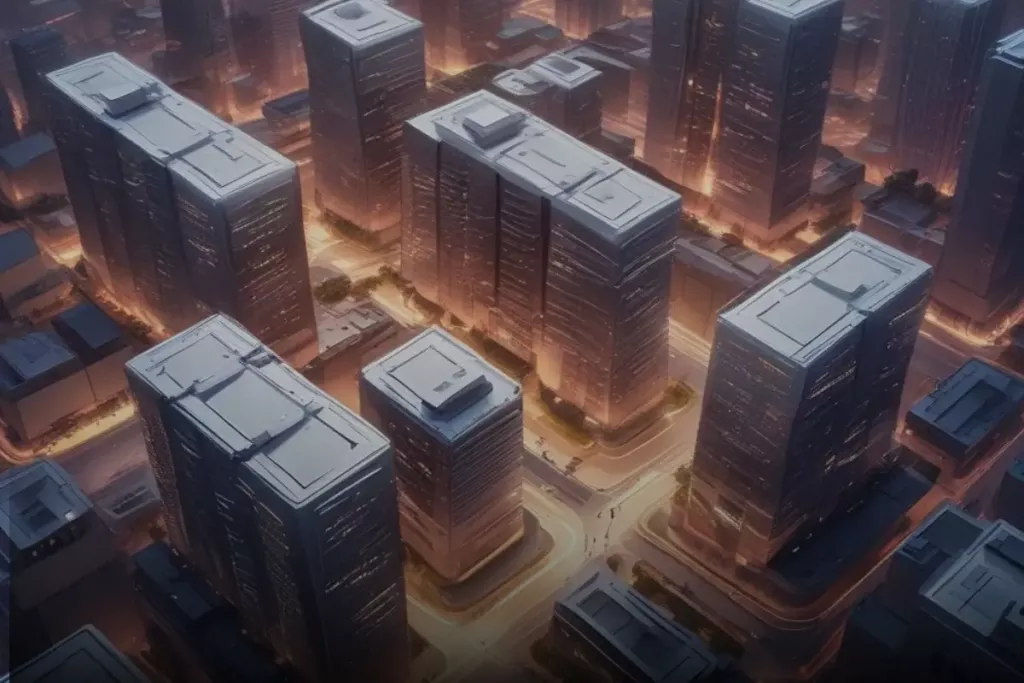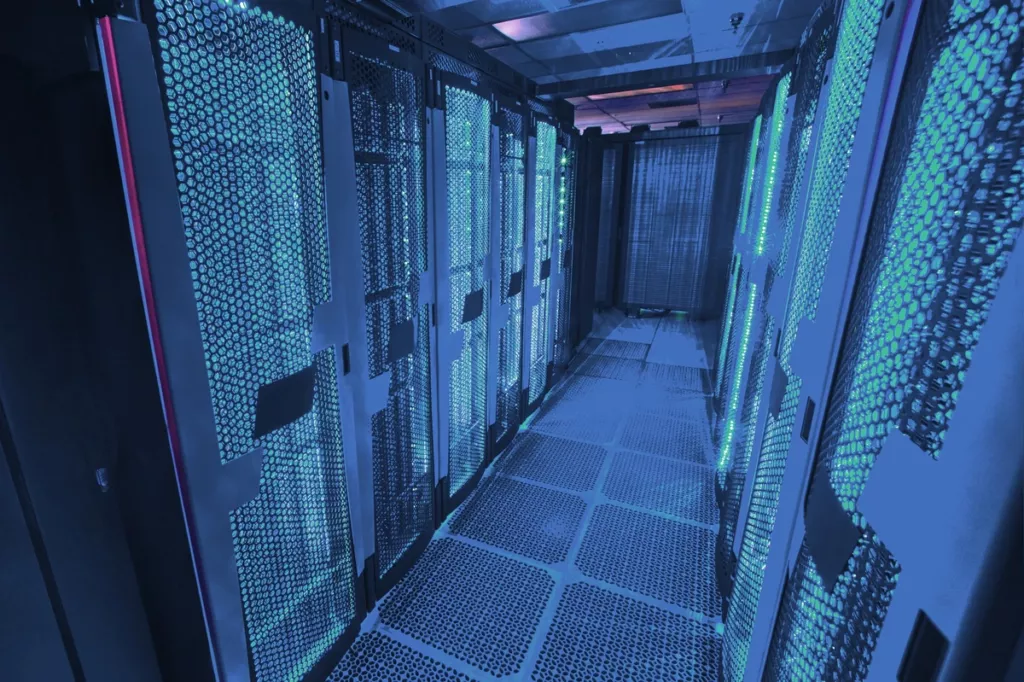What is a Data Center: Definition, Types, and Benefits

A data center is a specialized information technology facility designed to store, process, and distribute digital data securely and efficiently. As the heart of information technology infrastructure, data centers are strategic assets for organizations to manage their large data volume, which requires high computation reliability.
In today’s digital era, data centers play a fundamental role in supporting business operations. They are more than just rooms filled with computers and servers; they are neural centers that enable companies to run critical applications, store important information, and ensure business continuity in an ever-evolving technological environment.
Data Center Architecture

1. Physical Infrastructure
The heart of every data center is its physical infrastructure, a complex and interconnected technology ecosystem. Modern servers are like giant brains, with multi-core processors capable of processing billions of instructions per second. Storage systems are no longer just conventional hard drives, but storage networks with hundreds of petabytes of capacity, arranged in advanced RAID co2nfigurations to ensure data redundancy and access speed.
RAID (redundant array of independent disks) is a way of storing the same data in different places on multiple hard disks or solid-state drives (SSDs) to protect data in the case of a drive failure.
Network devices like high-speed routers and switches act as nervous systems, routing data flows with millisecond precision. Every cable, every connection is designed to transfer information with maximum efficiency, creating a complex yet smooth digital communication network.
2. Cooling Systems
Cooling systems in modern data centers are advanced engineering works. Rooms are controlled with near-perfect precision, with temperatures maintained between 15-25 degrees Celsius. Advanced cooling technologies use methods like direct cooling, water cooling, and even immersion cooling systems that submerge servers in non-conductive, conductive liquid. According to a report by Datacenters.com, these methods are essential for maintaining optimal performance and energy efficiency.
3. Security Systems
Data center physical security employs a multi-layered defense to protect the facility and its contents. This includes perimeter defense with electronic fences, AI-powered surveillance cameras for 24/7 monitoring, and biometric access control to restrict entry only for authorized personnel. Trained security staff are present around the clock, while secure entry points and emergency response systems further safeguard the premises.
4. Connectivity
Connectivity in modern data centers is about light-speed and redundancy. Internet connections are not just high-speed but have multiple carriers and backup routes. Some data centers have direct interconnection options that allow direct data exchange between infrastructures without going through the public internet.
Read more:
Types of Data Centers

1. Enterprise Data Centers
These data centers are established and managed internally by an organization. They have the advantage of full control over infrastructure, security, and configuration. They are typically located within company buildings or in special areas built to support the organization’s computing needs.
2. Colocation Data Centers
Colocation data centers offer a shared facility solution where companies can place their server equipment in a service provider’s data center location. The primary advantages include access to premium infrastructure such as:
- Advanced cooling systems
- Multi-layered physical security
- High-speed internet connectivity
- Power redundancy
3. Cloud Data Centers
Using virtualization technology, cloud data centers enable access to computing resources via the internet. Companies can store and process data without needing to own physical infrastructure. Major providers like AWS, Google Cloud, and Microsoft Azure provide these services with high scalability and flexibility.
4. Edge Data Centers
These are smaller facilities placed closer to end-users. Designed to reduce latency and improve data processing speed, edge data centers are crucial for applications requiring instant responses, such as Internet of Things (IoT), online gaming, and streaming services.
Benefits of Data Centers
1. Control
Imagine an IT infrastructure that offers complete control, allowing you to expand and contract resources based on your business needs. In a colocation data center, you can easily add or remove servers, storage, and networking equipment without the delays of traditional setups. Whether you’re a startup starting with a few servers or an enterprise scaling up to hundreds of nodes, you have the flexibility to select and manage exactly what you need—on your terms—without relying on third-party limitations or disruptions.
2. Substantial Cost Efficiency
In comparison to building internal infrastructure, colocation data centers provide a far more efficient cost model. Companies can transform large capital expenditures (CAPEX) into measurable operational expenditures (OPEX). No need for expensive infrastructure investments, maintenance costs, or concerns about technological obsolescence.
3. High and Guaranteed Service-Level Agreement (SLA)
Redundancy in modern data centers is designed to achieve 99.999% availability – meaning less than 5 minutes of downtime per year. Every critical component has a direct backup ready to take over instantly in case of failure.
4. Security
Data center security goes beyond mere protection. It’s a holistic security ecosystem protecting data from physical and physical threats. Compliance with international standards like ISO 27001 and PCI DSS ensures layered protection.
Read more: Colocation Data Centers Evolution: Why They Matter
The Future of Data Centers: Technology Redefining Possibilities

1. Artificial Intelligence (AI)
AI integration in data centers is not just a trend, but a fundamental transformation:
- Automatic resource management optimization
- High-precision computation needs prediction
- Adaptive cybersecurity systems
- Data analytics capable of making complex decisions
Imagine data centers that can:
- Predict potential system failures before they occur
- Reallocate resources in seconds
- Independently develop new security protocols
2. Edge Computing
Edge computing revolutionizes how we process information:
- Data processing closer to its source
- Ultra-low latency for real-time applications
- Full support for Internet of Things (IoT)
- Significant bandwidth efficiency
Real-world example: Smart city systems capable of making decisions in milliseconds based on data from thousands of sensors.
3. Hybrid Solutions
The data center architecture of the future is hybrid:
- Seamless combination of on-premise, colocation, and cloud
- Unlimited scalability
- Intelligent cost optimization
- Rapid adaptation to changing business needs
4. Green Data Centers
Sustainability is not just a trend, but a necessity:
- 100% renewable energy usage
- Ultra-efficient infrastructure design
- Environmentally friendly cooling technologies
- Significant carbon footprint reduction
Read more: Green Data Centers: The Future of Sustainable IT Infrastructure
Conclusion: Transformation Starts Now
Perhaps it’s time for you to move your IT infrastructure to a data center. Some key questions for you:
- Is your IT infrastructure ready to face future challenges?
- What hidden costs exist in your current infrastructure model?
- Can you measure and optimize your digital performance?
Ready to take the next step?
Fill out the form below and set up a meeting with our team at EDGE DC. We’ll help you explore how a data center solution can simplify and future-proof your IT strategy.


